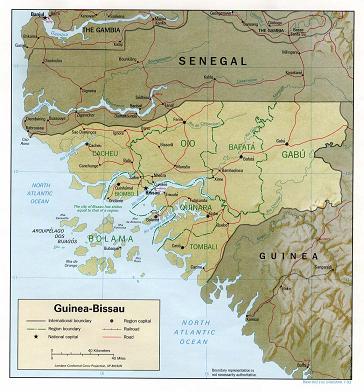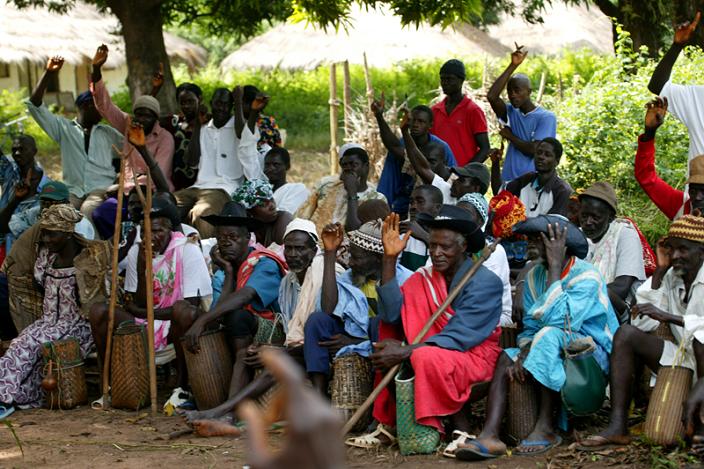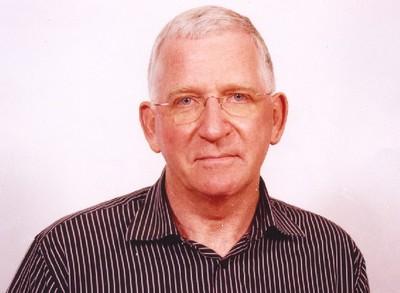Instabiliteit, corruptie en drugsmaffia's
Ik ontving van Ernst Schade deze bijdrages. Ernst woont in Lissabon en is zeer begaan met de ontwikkelingen in de voormalige Portugese kolonies. Hij schreef al eens een bijdrage op mijn blog over Guinee-Bissau (Te gast 2) en zorgde er mede voor dat daar een radiostation van de grond kwam (Media 72)
Guinee-Bissau is een arm land in West-Afrika. Dit jaar is het veertig jaar onafhankelijk, maar er is weinig reden voor vreugde.
Het is een -door het westen- vergeten, onbelangrijk geacht landje, waar het eigenlijk ’’nooit pluis’’ is.
Hieronder een bericht van IPS (Inter Press Service) en een bijdrage van Jan van Maanen, honorair consul voor Nederland en Groot-Brittannië in Guinee-Bissau.
Jan woont daar al sinds 1984 en leidt een handelsbedrijf.
Hij was vele jaren lang vice-president van de Kamer van Koophandel.
Guinee-Bissau veertig jaar onafhankelijk
LISSABON (IPS) —
Guinee-Bissau nadert zijn veertigste verjaardag maar veel reden tot feesten is er niet.
Chronische instabiliteit, extreme armoede, drugsmaffia's en corruptie zijn schering en inslag in het Afrikaanse land.
Sinds Guinee-Bissau in september 1973 onafhankelijk werd van Portugal – Lissabon erkende het land een jaar later – hebben de 1,5 miljoen inwoners weinig periodes van vrede meegemaakt. Het staat vandaag te boek als één van de armste landen ter wereld.
Vooral de opeenvolging van staatsgrepen heeft het West-Afrikaanse land zeer onstabiel gemaakt. Door de meest recente coup, in april vorig jaar, verhinderde het leger dat de regering die een maand voordien verkozen was, aan de macht kwam. Generaal Antonio Injai kondigde een overgangsperiode aan en benoemde Serifo Nhamadjo tot president en Rui Duarte de Barros tot eerste minister.
Drugsmaffia's
Injai beschuldigt Portugal ervan dat het "van de crisis gebruik maakt om Guinee-Bissau opnieuw te koloniseren." De Portugese minister van Buitenlandse Zaken, Paulo Portas, verwijt de coupplegers dat ze zich voor de kar van de drugmaffia's hebben laten spannen.
Ondanks de internationale kritiek, ook van de VN en de Afrikaanse Unie, blijft Injai in het zadel, volgens heel wat analisten dankzij de steun van Nigeria.
Nigeria heeft de coup maar lauw veroordeeld in de Economische Gemeenschap van West-Afrikaanse Staten (Ecowas), zegt de Guinee-Bissause academicus en onderzoeker in ballingschap Emilio Kafft Costa. "Dat heeft alles te maken met de dubbelzinnige houding van sommige landen in de Ecowas. Ze beschermen meer hun eigen nationale belangen dan die van Guinee-Bissau of de andere landen. En Nigeria is de grote geostrategische speler in de regio."
Concurrentie van Angola
Nigeria, een belangrijke olieproducent, is in een grote concurrentiestrijd verwikkeld met Angola, ook een sterk opkomende oliemacht. "Nigeria heeft het moeilijk met de sterke aanwezigheid van Angola in Guinee-Bissau: de invloed van Luanda neemt toe in een zone waar de Nigerianen niet bereid zijn terrein prijs te geven", zegt Kafft Costa.
Deze maand stuurde de VN de voormalige president van Oost-Timor, José Ramos-Horta, als speciaal gezant naar Guinee-Bissau. "Zeer positief", vindt Kafft Costa. "Hij zal de dialoog weer mogelijk maken en iets van de verloren tijd goedmaken." Nobelprijswinnaar Ramos-Horta geniet heel wat aanzien.
Maar Kafft Costa betreurt dat veel landen en internationale organisaties na hun forse veroordeling van de staatsgreep, passief hebben toegekeken.
De Braziliaanse minister van Buitenlandse Zaken, Antonio Patriota, zei dinsdag nog op een internationale top in Montevideo dat de situatie in Guinee-Bissau momenteel één van de grootste uitdagingen voor Afrika is. "We mogen niet onverschillig blijven", zei hij. Brazilië en Guinee-Bissau hebben nauwe culturele en historische banden. Maar ook Patriota moest toegeven dat de pogingen van de VN-Veiligheidsraad tot nog toe niets hebben uitgehaald.

African Union taking over the initiative in Guinea-Bissau ?
 (Door Jan van Maanen)
(Door Jan van Maanen)
After the Coup d’Etat in Guinea-Bissau in April last year, different
International Organizations (UN, EU, CPLP, etc) showed an interest to help the country back to normality.
The ECOWAS took an early lead. The other organizations appeared to be happy with that. But little was achieved by ECOWAS. Looking at the delay in December 2012, it became clear that there will be no elections in April 2013, as was agreed in the Transitional Pact. (the general agreement between most political parties -except PAIGC- and the army about the return to civilian rule).
Since the Coup, the country has been deprived from much needed financial help and it has brought the economy to a never experienced slow down. Many business do not even bother to open in the afternoon because of lack of activities.
The Government faces one strike after the other because of nonpayment of salaries. People are dying in the National Hospital because the staff does not come to work and Government schools are closed.
Hotels have few visitors (a Coup d’Etat does not exactly attract tourists or investors), restaurants lowered prices to attract customers and many shops are empty because of reduced imports. On top of the restrictions caused by the “non involvement” policy of European Countries, Brazil, etc. there was the cashew disaster. 60.000 tons of cashew nuts were not exported by September. At the moment of reporting (mid December 2012) there has been some progress with the cashew exports. It is still unclear who made a loss.
Politically there has been some progress. Parliament, the only post Coup body still accepted by most partners of Guinea-Bissau, was in danger to disappear. The law said that the mandate of the elected Parliament would end after 4 years, which would be in November 2012. With a 100% majority Parliament decided to change that law into: “the mandate ends at the moment the next elected Parliament takes the oath.” The Transitional President signed this change into law.
The different International organizations, like the African Union, the UN, the European Union, the CPLP, etc were not happy with lack of progress that took place under the guidance of the ECOWAS. In early December in Addis Abeba at the African Union,itwas decided that a new joint effort would be made to get the transition in movement.
The Parties that signed the Transitional Pact (most of these parties are so small that they are not represented in Parliament !) and formed the new Government after the Coup, protested against the “self proclaimed” extension of the legality of Parliament at the High Court. They feel that the base under the actual Government is attacked. It is significant to understand that the biggest party of the Pact, the PRS with 28 MP’s in Parliament did NOT sign this letter of protest. The PRID, with 3 MP’s, did.
We are expecting something positive from this combined UN, CPLP, EU, AU mission.
Jan

